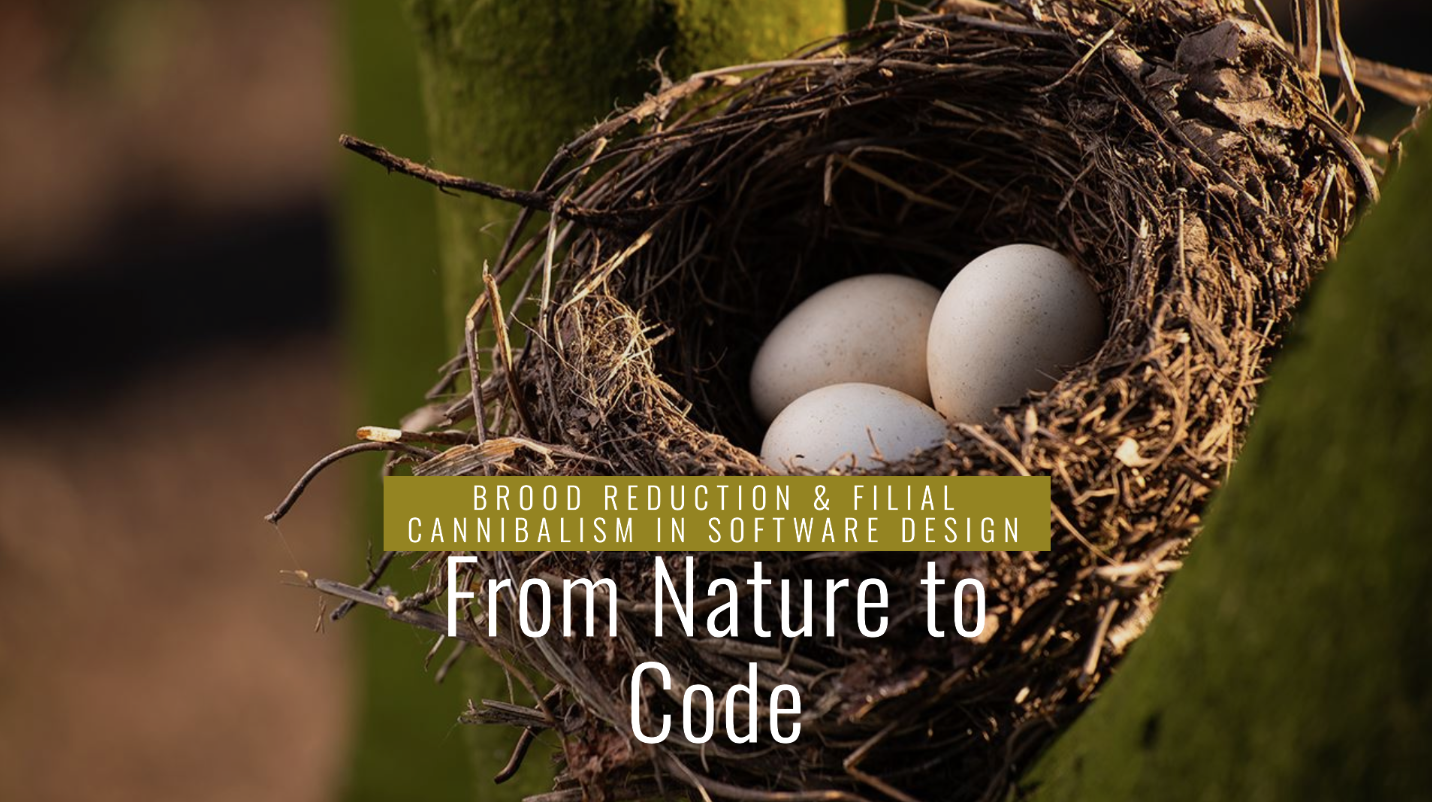
Preface
Nature's survival strategies can be pretty brutal, right? Take brood reduction and filial cannibalism - yeah, they sound harsh, but hear me out. These natural tactics from the animal kingdom give us some cool insights into managing our software projects. It's all about efficiency and survival, whether you're a bird or a coder.
Brood Reduction in Nature
Being a bird parent can be tough when food is hard to find. Sometimes, they have to make a sad choice called brood reduction. This means they might push the tiniest, weakest baby bird out of the nest. It's about making sure the stronger babies have enough to eat. Here, you can see a mom bird making this hard decision, nudging her smallest chick away. It's nature's way of handling when there's not enough food for everyone, and it's really tough to see.
Brood Reduction to Software Engineering
- MVP Development: Just like birds don't hatch all babies, developers start with only the essential features that meet core user needs. This prevents resource drain on non-critical functionalities, ensuring the product can be launched with the best chance of success.
- Example: If you're developing a new social media app, instead of building out a full suite of features like video streaming, advanced analytics, and multiple language support, you might focus solely on user profiles, basic posting, and commenting. This is your "brood" - only nurturing the features that are critical for initial user engagement.
Filial Cannibalism in Nature
Sometimes, nature gets even crueler with brood reduction. Instead of just kicking the weakest babies out, the parents might actually eat them. Yeah, it sounds brutal, but it's called filial cannibalism. They'll keep eating one, two, or more babies until only the strongest are left in the nest. It's a tough world out there, where even parents have to make these harsh choices to ensure that at least some of their kids survive.
Filial Cannibalism in Software Engineering
In software, this can be likened to:
- Refactoring: Here, developers might decide to rewrite or remove parts of the codebase that are no longer beneficial or efficient. This "cannibalizes" the old code to make way for a more streamlined, robust version of the software
- Example: Imagine a codebase where an old module for user authentication has become bloated with unnecessary checks and outdated security protocols. Instead of patching, a developer might choose to rewrite this module from scratch, effectively "consuming" the old code to produce a leaner, more secure solution.
Integrating Both Concepts
When these strategies are combined:
- Project Lifecycle: Throughout the development lifecycle, brood reduction might be practiced by continuously evaluating which features are worth investing in, while filial cannibalism could be applied during refactoring phases, where parts of the codebase are critically re-evaluated and potentially replaced or removed.
- Agile Methodology: Agile development implicitly uses these concepts by iteratively refining the product, cutting features that don't work out, and improving others, much like natural selection.
Conclusion
By looking at how species like birds manage their broods engage in filial cannibalism, we can draw parallels to our software practices. The key takeaway is about efficiency and survival - ensuring that only the most viable parts of a project or codebase are nurtured and maintained. Whether you're pruning an MVP to ensure market fit or refactoring code to enhance maintainability, these natural strategies remind us to be ruthless with our resources and relentless in our pursuit of quality and relevance.
This approach not only leads to better software but also teaches us to be strategic about where we invest our time and effort, much like nature dictates through its harsh but effective methods.
NOTE: I'm constantly delighted to receive feedback. Whether you spot an error, have a suggestion for improvement, or just want to share your thoughts, please don't hesitate to comment/reach out. I truly value connecting with readers!